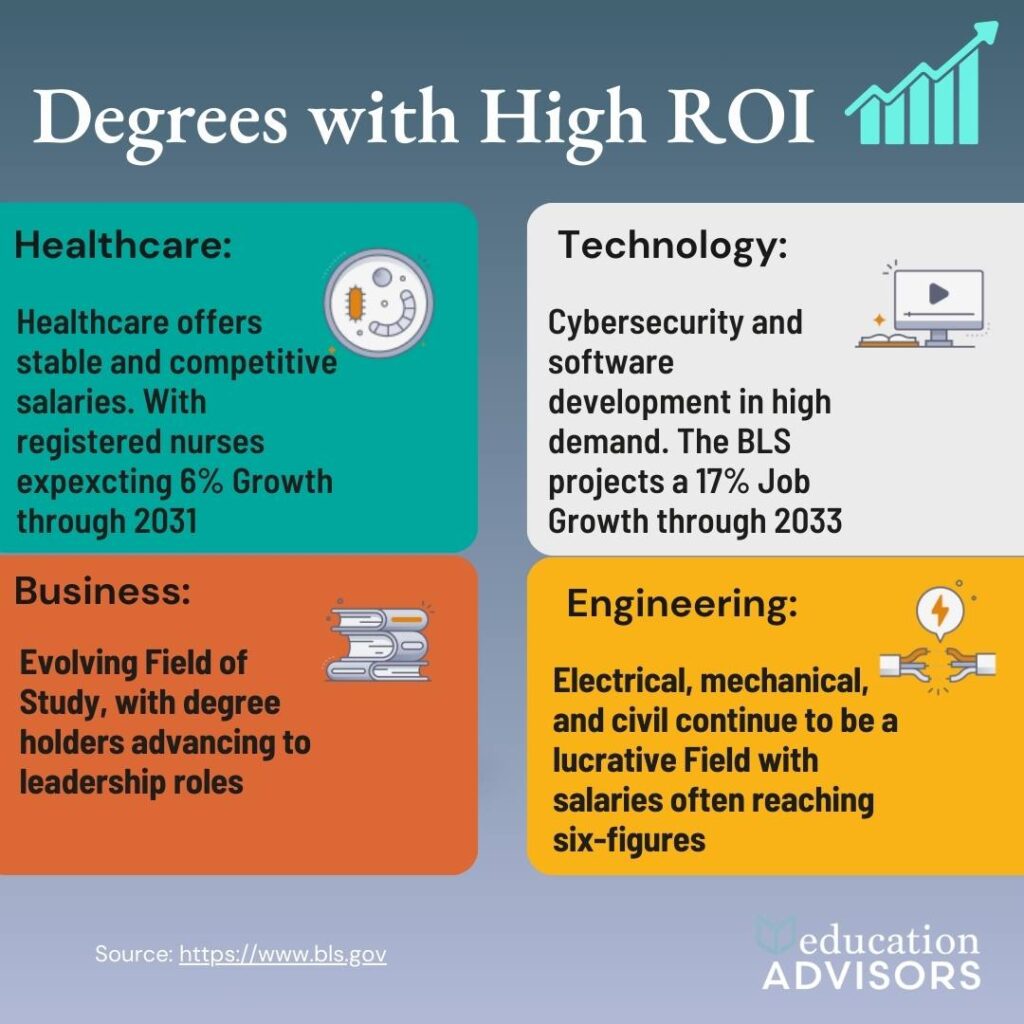College Planning
In today’s ever-changing job market, many prospective students and career changers are questioning whether earning a degree is still worth the investment. With the rise of alternative education options, rapidly advancing technology, and shifting employer expectations, it’s a valid question. Let’s break down the factors to consider when deciding if a degree is right for you in 2025.

A college degree has traditionally been seen as a ticket to a stable career and higher earning potential. Despite changes in the job market, this still holds true for many industries. According to the Bureau of Labor Statistics, individuals with a bachelor’s degree earn approximately 64% more per week than those with only a high school diploma. The unemployment rate for degree holders is also lower, highlighting the continued stability a degree can offer.
However, not all degrees are created equal. High-demand fields like technology, healthcare, and engineering often offer a clear return on investment, while other areas may require additional considerations.
The traditional four-year degree is no longer the only path to a successful career. In 2025, learners have more alternatives than ever:
Short-term, intensive programs can quickly upskill individuals in areas like coding, digital marketing, and data analytics. According to Course Report, bootcamp graduates see an average salary increase of 51%.

Platforms like Coursera, Udemy, and edX offer affordable courses in countless subjects, often with certificates of completion. Many top universities now provide fully online degrees.
These hands-on learning experiences provide valuable training while earning a paycheck. Companies like IBM and Google have embraced apprenticeship models for skill-based hiring.

Fields like IT and finance increasingly recognize specialized certifications, such as CompTIA for IT professionals or CFA for finance experts, over traditional degrees.
Explore More Articles
The Future of Education: AI Skills Every Graduate Needs
AI Boom: Industries on the Rise vs. Industries in Decline
Degrees That Will Thrive in the AI Business Era
Are Certificates the New Degrees? How Microcredentialing Fits into an AI World
5 Online Degrees That Help You Work in Mental Health (Without Being a Therapist)
How to Choose Your Major in an AI-Dominated Future
How to Pursue the Pharmacy Tech Field Without Experience
Military to Trade Career: Best Paths for Veterans
Explore Degree Levels
Explore Degree Subjects
If you’re wondering whether a degree is worth it, ask yourself the following questions:

Does your desired career require a degree? Fields like law, medicine, and education still mandate formal education.

Research whether professionals in your field earn more with a degree. Data from Georgetown University indicates that bachelor’s degree holders earn $1 million more over their lifetime than those without a degree.

Can you afford the time and money required for a degree, or would a shorter, less expensive path work better? Education Data Initiative reports that the average student loan debt in the U.S. is around $38,000.

Universities often provide valuable networking opportunities that can kickstart your career. Alumni networks and on-campus events are invaluable resources.

Investigate whether your field is seeing a shift toward valuing skills and experience over formal education. Fields like technology and creative industries increasingly prioritize portfolios and project work.
In 2025, employers are increasingly emphasizing skills and experience over formal education. Demonstrating your ability to solve problems, think critically, and adapt to new challenges can often outweigh a degree. Building a strong portfolio and gaining hands-on experience through internships, freelance work, or volunteer projects is essential.
According to a 2024 LinkedIn report, 76% of hiring managers now value demonstrated skills over formal education for many roles. This trend is particularly evident in technology and creative industries.
If you decide that a degree is worth pursuing, consider fields with strong job growth and earning potential:

Deciding whether a degree is worth it in 2025 comes down to your unique goals, financial situation, and career aspirations. For some, a traditional degree will still be the best path to success. For others, alternative education and skill-building may provide a faster, more affordable way to achieve their dreams.
Want to explore your options? Take our program matching quiz to discover the best educational path for your goals and interests.